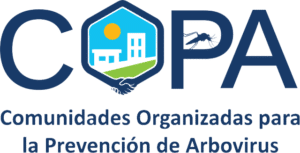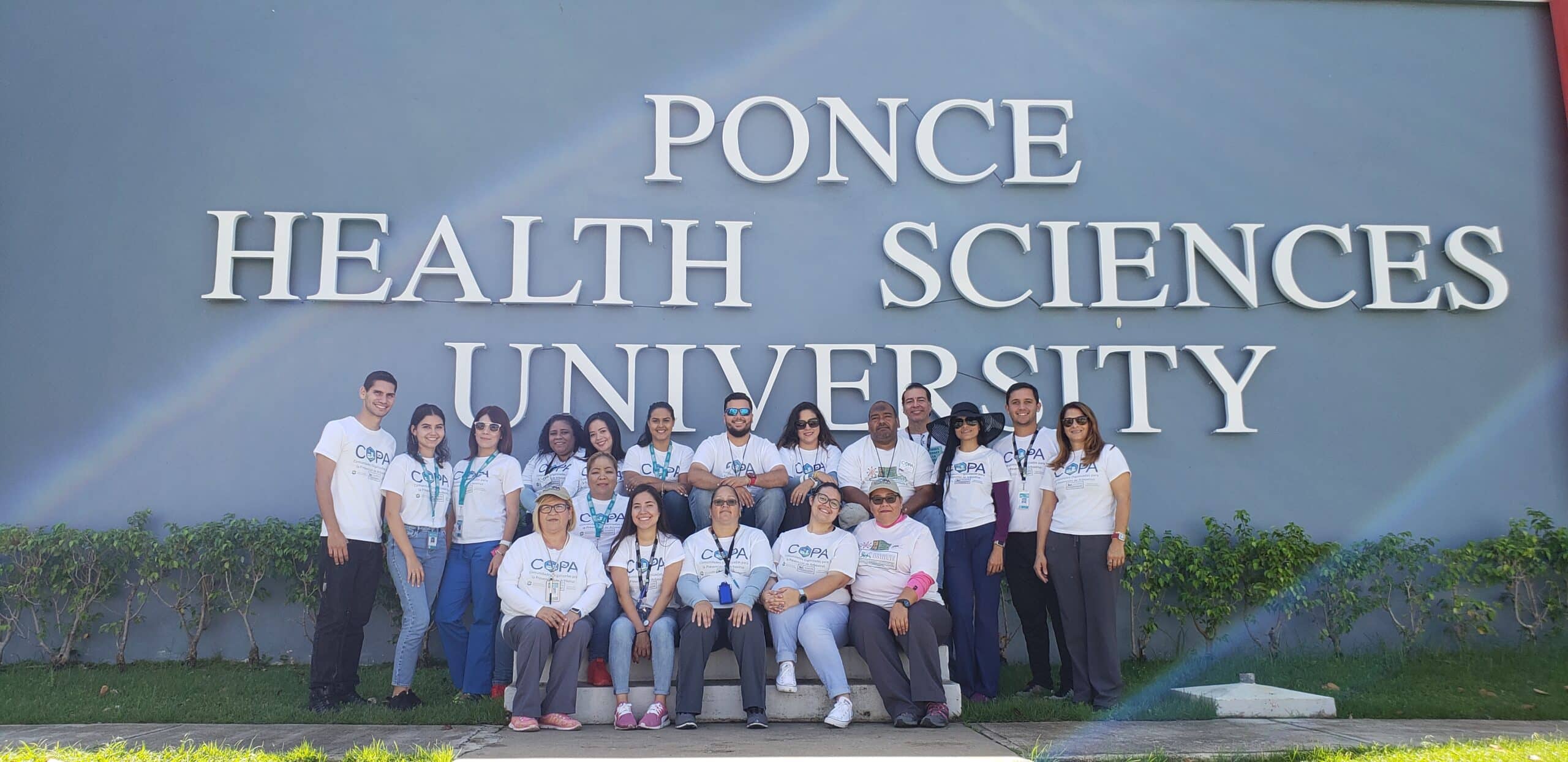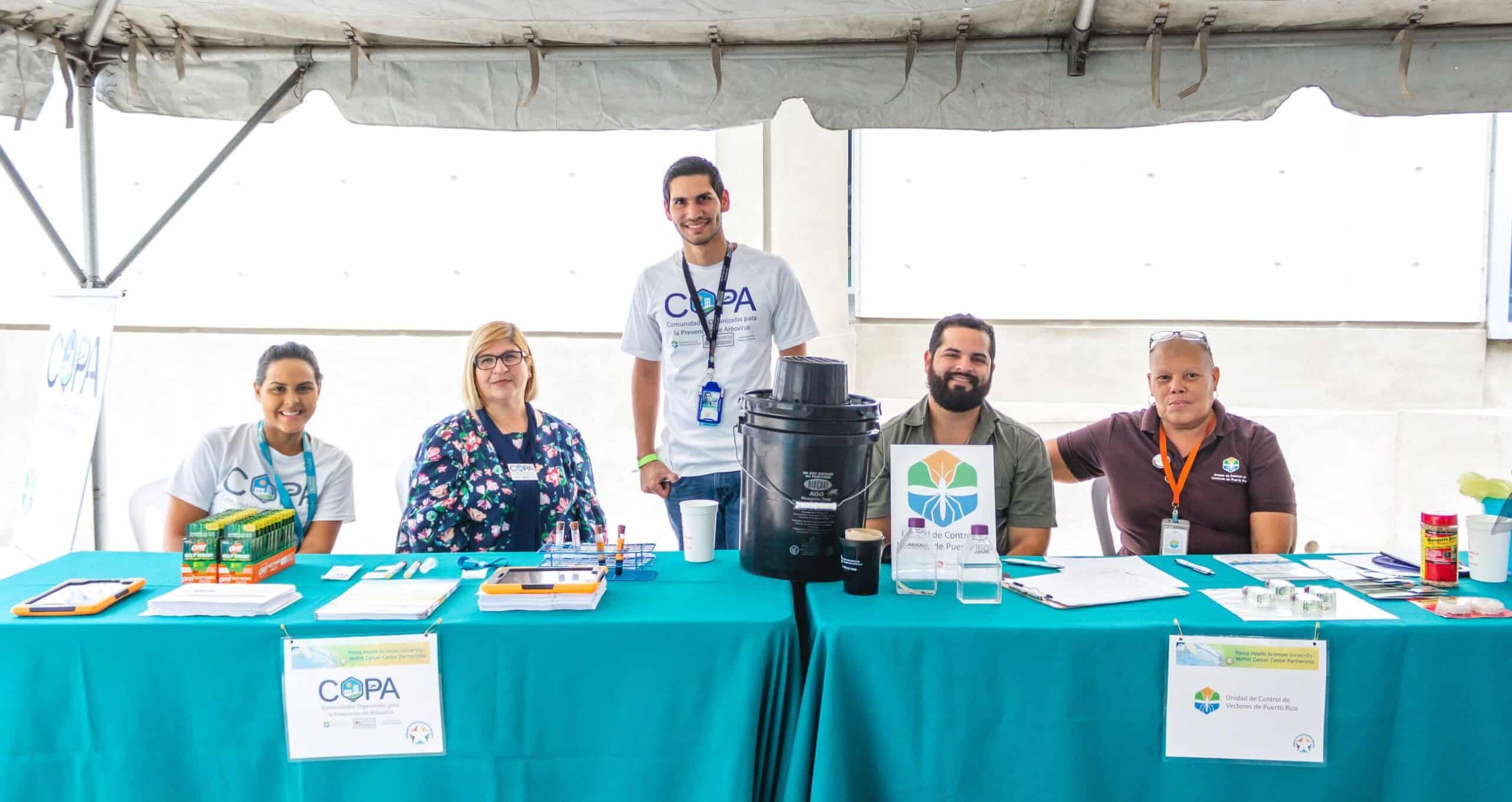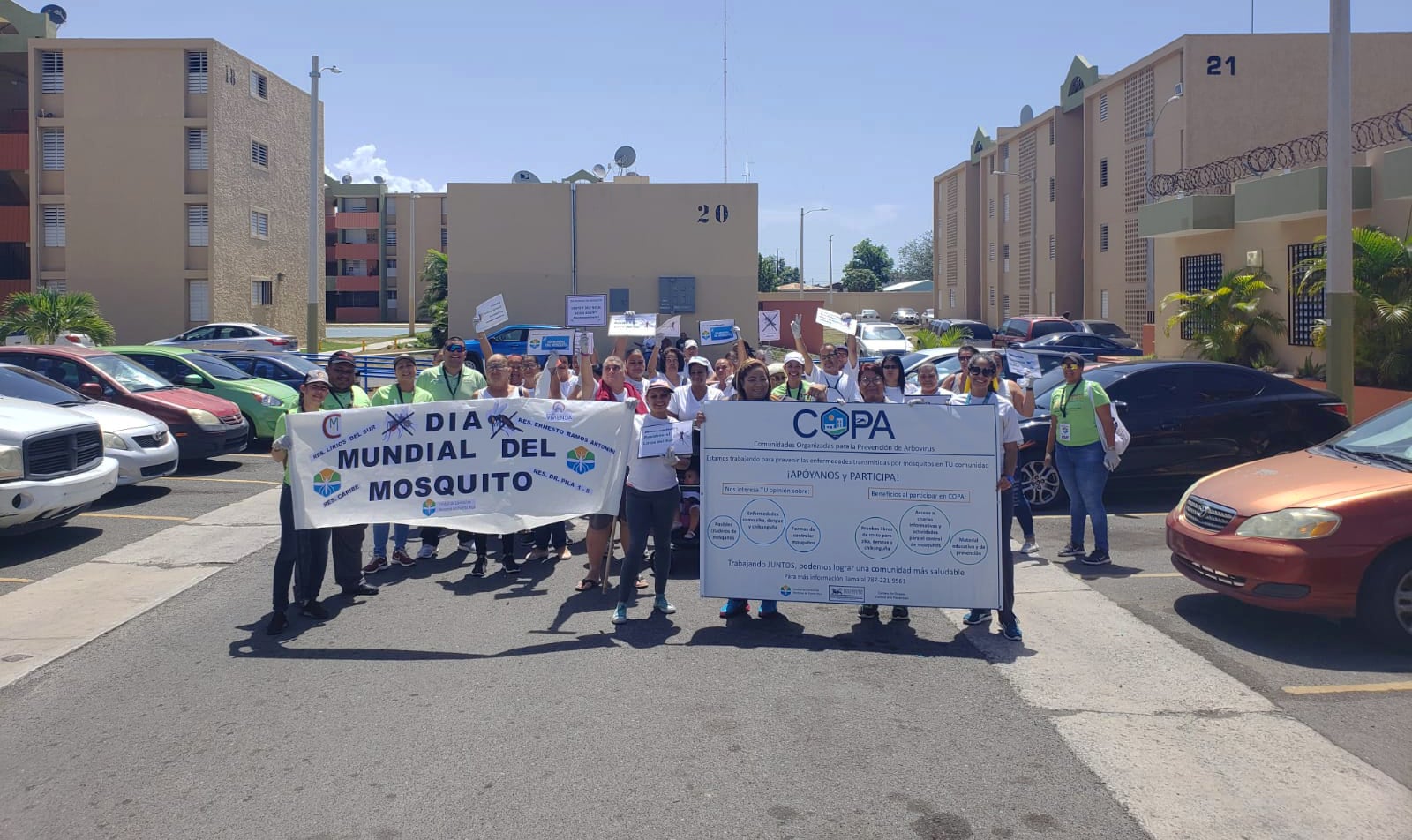Communities Organized for the Prevention of Arbovirus
COPA is a project designed to organize more than 90 communities in 14 zones in Ponce, Puerto Rico, to prevent infections transmitted by mosquitos. COPA means Communities Organized for the Prevention of Arboviruses. In Puerto Rico, the Aedes aegypti is the mosquito responsible for the transmission of the Dengue, Chikungunya and Zika virus. Ponce has presented a high incidence and prevalence of these diseases in the past. An effective mosquito control requires careful and continues a job that starts in the home and requires the support of everyone in the community.
Our objective is to perform continuous community surveillance of the diseases transmitted by mosquitoes in a group of 3,500 participants, perform mosquito surveillance and evaluate the opinion and impact of mosquito control interventions.
We visit randomly selected houses to perform interviews, to learn the way each house member prevents mosquito bites. Our trained personnel also draw blood samples to identify if the person was infected by Dengue, Chikungunya or Zika in the past. These results will be sent back to the participants by mail to the participant’s address. We are looking for household members that sleep in the house more than 4 nights per week, do not have plans to move out of their homes and are younger than 50 years to participate in the project.
Our objective is to perform continuous community surveillance of the diseases transmitted by mosquitoes in a group of 3,500 participants, perform mosquito surveillance and evaluate the opinion and impact of mosquito control interventions.
We visit randomly selected houses to perform interviews, to learn the way each house member prevents mosquito bites. Our trained personnel also draw blood samples to identify if the person was infected by Dengue, Chikungunya or Zika in the past. These results will be sent back to the participants by mail to the participant’s address. We are looking for household members that sleep in the house more than 4 nights per week, do not have plans to move out of their homes and are younger than 50 years to participate in the project.



